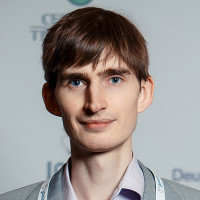Speakers
Maurice Herlihy / Brown University Computer Science Dept
Maurice Herlihy has an A.B. in Mathematics from Harvard University, and a Ph.D. in Computer Science from M.I.T. He has served on the faculty of Carnegie Mellon University and the staff of DEC Cambridge Research Lab. He is the recipient of the 2003 Dijkstra Prize in Distributed Computing, the 2004 Gödel Prize in theoretical computer science, the 2008 ISCA influential paper award, the 2012 Edsger W. Dijkstra Prize, and the 2013 Wallace McDowell award. He received a 2012 Fulbright Distinguished Chair in the Natural Sciences and Engineering Lecturing Fellowship, and he is fellow of the ACM, a fellow of the National Academy of Inventors, the National Academy of Engineering, and the National Academy of Arts and Sciences.

Michael Scott / University of Rochester

Michael L. Scott is the Arthur Gould Yates Professor of Engineering and past chair of the Department of Computer Science at the University of Rochester, in Rochester, NY, USA. He is a Fellow of the ACM and the IEEE, and a recipient of the 2006 SIGACT/SIGOPS Edsger W. Dijkstra Prize.
His textbook on programming language design and implementation (Programming Language Pragmatics, 4th ed., Morgan Kauffman, 2016) is used at more than 200 universities around the world.
In the java.util.concurrent library, he is a co-inventor of the ConcurrentLinkedQueue, Exchanger, and SynchronousQueue classes.

Leslie Lamport / Microsoft

Leslie B. Lamport is an American computer scientist. Lamport is best known for his seminal work in distributed systems and as the initial developer of the document preparation system LaTeX. Leslie Lamport was the winner of the 2013 Turing Award for imposing clear, well-defined coherence on the seemingly chaotic behavior of distributed computing systems, in which several autonomous computers communicate with each other by passing messages. He devised important algorithms and developed formal modeling and verification protocols that improve the quality of real distributed systems. These contributions have resulted in improved correctness, performance, and reliability of computer systems.
Cliff Click / CRATUS
Cliff Click was the CTO of Neurensic (now successfully exited) and CTO and Co-Founder of h2o.ai (formerly 0xdata), a firm dedicated to creating a new way to think about web-scale math and real-time analytics.
He wrote his first compiler when he was 15 (Pascal to TRS Z-80!), although his most famous compiler is the HotSpot Server Compiler (the Sea of Nodes IR). Cliff helped Azul Systems build an 864 core pure-Java mainframe that keeps GC pauses on 500Gb heaps in the micro-second range, and worked on all aspects of that JVM. Before that he worked on HotSpot at Sun, and is at least partially responsible for bringing Java into the mainstream.
Cliff is invited to speak regularly at industry and academic conferences and holds a PhD in Computer Science and more than 20 patents.
Martin Kleppmann / University of Cambridge
Dr Martin Kleppmann is a researcher in distributed systems at the University of Cambridge, and author of the acclaimed "Designing Data-Intensive Applications" (O'Reilly Media, 2017). He mainly works on collaboration software, CRDTs, and formal verification of distributed algorithms. Previously he was a software engineer and entrepreneur at Internet companies including LinkedIn and Rapportive, where he worked on large-scale data infrastructure.
Heidi Howard / University of Cambridge
Dr Heidi Howard is a research fellow based at Cambridge University's Department of Computer Science and Technology. Heidi's research focuses on improving consistency, reliability and performance in distributed systems. Heidi received her BA in Computer Science from Cambridge University in 2014. In 2019, Heidi received her PhD from Cambridge University for her research on distributed consensus. Heidi is probably most widely known for her generalizations of the widely used Paxos algorithm for solving consensus, including her work on Flexible Paxos.

Ori Lahav / Tel Aviv University

Ori is a faculty member in the School of Computer Science at Tel Aviv University. He did his PhD at Tel Aviv University under the supervision of Arnon Avron. In 2014, he was a postdoctoral researcher at Tel Aviv University hosted by Mooly Sagiv. After that, until September 2017, he was a postdoctoral researcher at MPI-SWS in Germany hosted by Viktor Vafeiadis and Derek Dreyer.
Ori's main areas of research are programming languages and verification, with a focus on concurrency and relaxed memory models. He's also interested in proof-theory and semantics of (non-classical) logics and automated reasoning.
Nikita Koval / JetBrains
Nikita works on algorithms for coroutines in the Kotlin team and has been getting a PhD at IST Austria. In addition, he teaches a course on concurrency programming at ITMO University and is interested in program analysis and verification.

























